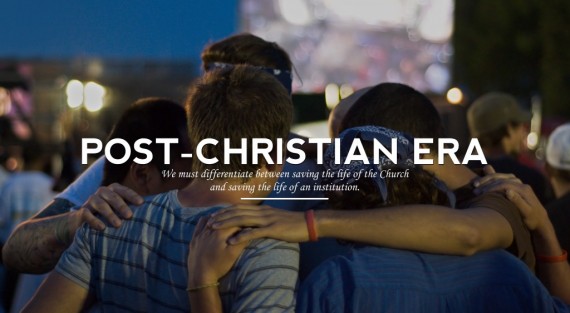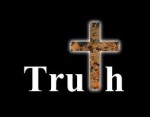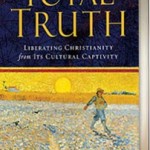 I recently read John Burke’s book No Perfect People Allowed. This is another book that every Christian should read.
I recently read John Burke’s book No Perfect People Allowed. This is another book that every Christian should read.
In the book, he makes the statement that we no longer live in a postmodern era, we now live in a post-Christian era (p. 15).
Is our Society Post-Christian?
Apparently, Christianity has already lost the war against postmodernism.
(I personally don’t think it was a war that ever should have been waged in the first place. Christians are to engage, embrace, and redeem culture, not fight against it.)
In his book, John Burke explains how the church can operate and function in a culture that is “post-Christian.”
Atheists think Christianity is Growing
Ironically, as I was reading this book about how to live as Christians in a post-Christian era, I ran across an exchange between atheist Christopher Hitchens (author of the best-selling book God is Not Great) and Suchin Pak (correspondent for MTV news). She announced to him that our culture was becoming increasingly Christian. She said, “Our audience is more religious and conservative than we assume.”
When he heard this, Hitchens replied, “I really hate to hear that the young are becoming more Christian. If that’s true, that’s the worst news of the night!”
So here we have two leaders both coming to different conclusions about our culture. The Christian says we are becoming post-Christian, while the atheist is alarmed that we are becoming increasingly Christian.
I guess it’s like the debate over global warming. Some say the polar ice caps are melting while others, who note that this it the coldest year in a century, are predicting a new ice age.
So what do you think? What have you observed in your community and with your friends? Is our society and culture “Post-Christian”?
The Great “Post-Christian” Opportunity
If you want to know what I think, the following picture sums it up nicely.

While institutional Christianity is quickly dying, there is rapid expansion in the number of people who are seeking to follow Jesus in organic, missional, relational ways. While the number of people who “go to church” might be decreasing, the number of people who seek to “be the church” is increasing.
In my opinion, this is a good and healthy thing, and provides a great opportunity for a post-Christian church to truly live and love others like Jesus in the world.





 This new/old way will not need millions of dollars to sustain itself the way churchianity does.
This new/old way will not need millions of dollars to sustain itself the way churchianity does.
 My family and I attended the
My family and I attended the 

 One of the best ways to reach people for Jesus today is not to try to persuade or convince them through rational arguments and persuasive reasoning.
One of the best ways to reach people for Jesus today is not to try to persuade or convince them through rational arguments and persuasive reasoning.



